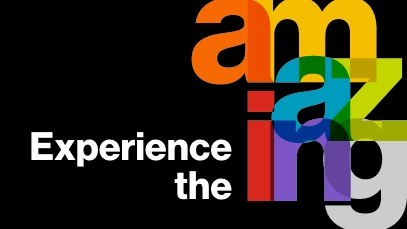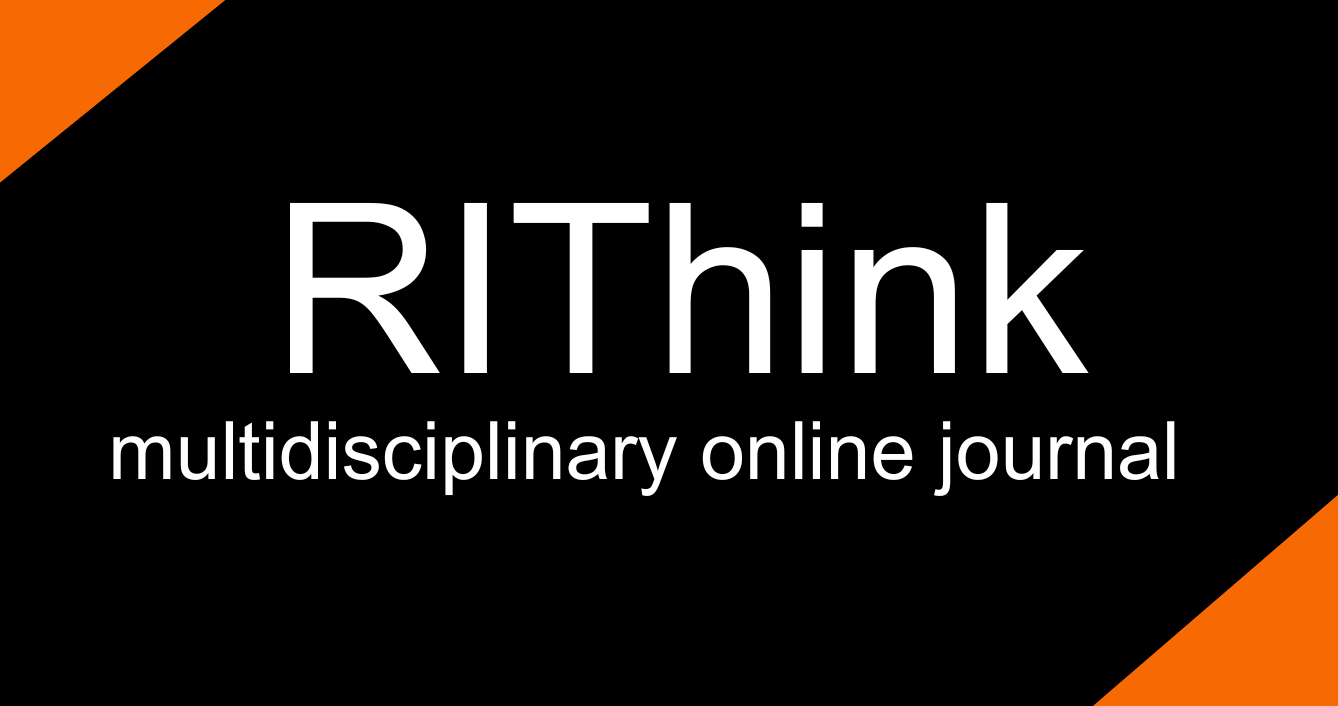GBM/IB Curriculum
| Course | Sem. Cr. Hrs. | |
|---|---|---|
| First Year | ||
| ACCT-110 |
Financial Accounting
An introduction to the way in which corporations report their financial performance to interested stakeholders such as investors and creditors. Coverage of the accounting cycle, generally accepted accounting principles, and analytical tools help students become informed users of financial statements. (This course is available to RIT degree-seeking undergraduate students.) Lecture 3 (Fall, Maymester).
|
3 |
| ACCT-210 |
Management Accounting
Introduction to the use of accounting information by managers within a business. Explores the value of accounting information for the planning and controlling of operations, assessing the cost of a product/service, evaluating the performance of managers, and strategic decision-making. (Prerequisites: ACCT-110) Lecture 3 (Spring, Maymester).
|
3 |
| ECON-101 |
General Education,Global Perspective: Principles of Microeconomics
Microeconomics studies the workings of individual markets. That is, it examines the interaction of the demanders of goods and services with the suppliers of those goods and services. It explores how the behavior of consumers (demanders), the behavior of producers (suppliers), and the level of market competition influence market outcomes. Lecture 3 (Fall).
|
3 |
| ECON-201 |
General Education,Elective: Principles of Macroeconomics
Macroeconomics studies aggregate economic behavior. The course begins by presenting the production possibilities model. This is followed by a discussion of basic macroeconomic concepts including inflation, unemployment, and economic growth and fluctuations. The next topic is national income accounting, which is the measurement of macroeconomic variables. The latter part of the course focuses on the development of one or more macroeconomic models, a discussion of the role of money in the macroeconomy, the aggregate supply-aggregate demand framework, and other topics the individual instructor may choose. (Prerequisites: ECON-101) Lecture 3 (Spring).
|
3 |
| MATH-161 |
Applied Calculus
This course is an introduction to the study of differential and integral calculus, including the study of functions and graphs, limits, continuity, the derivative, derivative formulas, applications of derivatives, the definite integral, the fundamental theorem of calculus, basic techniques of integral approximation, exponential and logarithmic functions, basic techniques of integration, an introduction to differential equations, and geometric series. Applications in business, management sciences, and life sciences will be included with an emphasis on manipulative skills. Prerequisite: C- or better in MATH-101, MATH-111, MATH-131, NMTH-260, NMTH-272 or NMTH-275 or Math Placement Exam score greater than or equal to 45.
|
4 |
| MGMT-101 |
Business 1: Introduction to Business Communication, Planning & Analysis
This is the first of a two-course sequence, 4 credit year long experience, comprising the freshman-integrated experience. In Business 1, students will be introduced to the key functional areas of business, discuss current factors, events, and trends that impact business, build professional, personal leadership, communication, and teamwork skills, and evaluate business decisions, and the business plan process. By understanding the key functions of business and analyzing business decisions in Business 1, students will be able to then develop their own business ideas in Business 2.Co-requisite: MGIS-101 or equivalent course).
|
3 |
| MGMT-102 |
Business 2: Business Planning and Professional Development
This course, the second course in the First-year Business Sequence, applies technology tools to create well defined and complete business plans. Students will develop websites and other marketing and process tools to take their business concept outlined in Business 1 to a final business plan for review with an outside board. (Prerequisites: MGMT-101 or equivalent course.) Lecture 3 (Spring).
|
1 |
| YOPS-10 |
RIT 365: RIT Connection
RIT 365 students participate in experiential learning opportunities designed to launch them into their career at RIT, support them in making multiple and varied connections across the university, and immerse them in processes of competency development. Students will plan for and reflect on their first-year experiences, receive feedback, and develop a personal plan for future action in order to develop foundational self-awareness and recognize broad-based professional competencies. Lecture 1 (Fall, Spring).
|
0 |
| Second Year | ||
| FINC-220 |
Financial Management
Basic course in financial management. Covers business organization, time value of money, valuation of securities, capital budgeting decision rules, risk-return relation, Capital Asset Pricing Model, financial ratios, global finance, and working capital management. Prerequisites: (ECON-101 or ECON-201) and ACCT-110 and (STAT-145 or STAT-251 or CQAS-251 or MATH-251 or MATH-252 or STAT-205).
|
3 |
| MGMT-215 |
Organizational Behavior
As an introductory course in managing and leading organizations, this course provides an overview of human behavior in organizations at the individual, group, and organizational level with an emphasis on enhancing organizational effectiveness. Topics include individual differences, work teams, motivation, communication, leadership, conflict resolution, organizational culture, and organizational change. (This class is restricted to undergraduate students with at least 2nd year standing.) Lecture 3 (Fall).
|
3 |
| MKTG-230 |
Principles of Marketing
An introduction to the field of marketing, stressing its role in the organization and society. Emphasis is on determining customer needs and wants and how the marketer can satisfy those needs through the controllable marketing variables of product, price, promotion and distribution. (This class is restricted to undergraduate students with at least 2nd year standing.) Lecture 3, (Fall).
|
3 |
| SCBI-035 |
Careers in Business
This course consists of a series of workshops designed to introduce business students to the skills needed to be successful in job and coop searches and applications to graduate schools. Students will establish their career goals, create material (e.g., resume, cover letter), and acquire skills needed to achieve these goals. (AL2,3,4-DegS) Lecture 15 (Fall).
|
0 |
| STAT-145 |
General Education,Mathematical Perspective A: Introduction to Statistics I
This course introduces statistical methods of extracting meaning from data, and basic inferential statistics. Topics covered include data and data integrity, exploratory data analysis, data visualization, numeric summary measures, the normal distribution, sampling distributions, confidence intervals, and hypothesis testing. The emphasis of the course is on statistical thinking rather than computation. Statistical software is used. (Prerequisite: MATH-101.) Lecture 3 (Fall, Maymester).
|
3 |
| STAT-146 |
General Education,Mathematical Perspective B: Introduction to Statistics II
This course is an elementary introduction to the topics of regression and analysis of variance. The statistical software package Minitab will be used to reinforce these techniques. The focus of this course is on business applications. This is a general introductory statistics course and is intended for a broad range of programs. (Prerequisites: STAT-145 or equivalent course.) Lecture 6 (Spring, Summer).
|
4 |
| INTB-225 |
General Education,Elective: Global Business Environment
Being an informed global citizen requires an understanding of the global business environment. Organizations critical to the development of the global business environment include for-profit businesses, non-profits, governmental, non-governmental, and supranational agencies. This course introduces students to the interdependent relationships between organizations and the global business environment. A holistic approach is used to examine the diverse economic, political, legal, cultural, and financial systems that influence both organizations and the global business environment. (This course is available to RIT degree-seeking undergraduate students. Lecture 3 (Spring).
|
3 |
| MGIS-130 |
Information Systems & Technology
To be successful in our globally-networked business environment, contemporary management professionals must have a strong grounding in the principles of information and information technology. This course provides an introduction to the field of management information systems (MIS), including the tools and techniques for managing information and information technologies within organizations. We place a particular emphasis on the nature of systems, the role of information in business processes, the management of data, and the planning of MIS design projects. Lecture 3 (Spring).
|
3 |
| MGMT-499 |
Management Co-op (summer)
One semester of work experience in management.
|
0 |
| Third Year | ||
| COMM-253 |
Communication
An introduction to communication contexts and processes emphasizing both conceptual and practical dimensions. Participants engage in public speaking, small group problem solving and leadership, and writing exercises while acquiring theoretical background appropriate to understanding these skills. Lecture 3 (Fall).
|
3 |
| BANA-255 |
Data Literacy, Analytics, and Decision Making (General Education)
This course serves as an introduction to the uses (and potential misuses) of data in a wide variety of social settings, including the exploration of contemporary techniques to analyze such data. Data acquisition, cleansing, management, analysis, and visualization will be addressed through hands-on projects. Project work will include contemporary social problems addressed using a dynamic set of resources and technologies. An emphasis will be placed on how insights gleaned from data analysis can be used to guide individual and group decision-making scenarios.
|
3 |
| MGMT-340 |
General Education-Ethical Perspective: Business Ethics and Corporate Social Responsibility
This course applies concepts of ethics to business at the macro level and at the micro level. At the macro level the course examines competing business ideologies exploring the ethical concerns of capitalism as well as the role of business in society. At the micro level the course examines the role of the manager in establishing an ethical climate with an emphasis on the development of ethical leadership in business organizations. The following topics are typically discussed: the stakeholder theory of the firm, corporate governance, marketing and advertising ethics, the rights and responsibilities of employees, product safety, ethical reasoning, business's responsibility to the environment, moving from a culture of compliance to a culture of integrity, and ethical leadership. This class is restricted to undergraduate students with at least 2nd year standing.
|
3 |
| DECS-310 |
Operations Management
A survey of operations and supply chain management that relates to both service- and goods- producing organizations. Topics include operations and supply chain strategies; ethical behavior; forecasting; product and service design, including innovation and sustainability; capacity and inventory management; lean operations; managing projects; quality assurance; global supply chains; and the impacts of technology. (Prerequisites: STAT-145 or MATH-251 or equivalent courses.) Lecture 3 (Spring).
|
3 |
| ISTE 764 |
Project Management
Information technology projects require the application of sound project management principles in order to be developed on time, on budget, and on specification. This course takes students through the nine knowledge areas of modern project management and the utilization of project management principles in both traditional and agile environments.
|
3 |
| MGMT-499 |
Management Co-op (summer)
One semester of work experience in management.
|
0 |
| Fourth Year | ||
| MGMT-560 |
Strategic Management
A capstone course drawing upon major business functions, accounting, finance, marketing, operations management, and organizational theory, and how strategic managers integrate functional theories and concepts to create competitive advantage. The course provides an integrated perspective of business organizations toward the achievement of enhanced profitability and a sustainable competitive advantage. Topics include the analysis of business environments, industry attractiveness, and competitive dynamics. Students learn how to formulate and implement effective business-level, corporate-level, and global strategies using theories, cases, and a simulation. (Prerequisites: MGMT-215 and MKTG-230 and FINC-220, and DECS-310 or equivalent courses.) Lecture 3 (Fall).
|
3 |
| MGMT-310 |
Leading Cross-Cultural & Virtual Teams (WI-PR)
Taught in an experiential, team-based format, this class focuses on leading cross-cultural and virtual teams, with an emphasis on developing strong team dynamics for effective performance in a global environment. Thus, class topics will center around understanding team development and leading teams, while considering varying relevant factors such as cultural differences, virtual communication, managing conflict, and team climate/trust, among others. The course will provide hands-on experience in leading and participating in teams, as students will be assigned to a team and will take on different roles, including team leader. When possible, the class includes a virtual team project with students at RIT’s global campuses.
|
3 |
| INTB-550 |
Competing Globally
This course explores the opportunities and challenges businesses encounter creating and capturing value in the global environment. Areas of emphasis include: forecasting markets; why firms globalize; analyzing global competitors; the degree of globalization or regionalization; creating value for the firm globally which includes entry mode management, location decisions and timing, role of technology; and how to operate.
|
3 |
| HRDE-386 |
Human Resources Development
A one-semester, three-credit course in human resource development provides the prospective manager practical information on methods to enhance the productivity, quality, and effectiveness of an organization through the creation of an environment where individual and collective performance and development has primacy. The course requires students to assimilate course material related to the following: to organizational strategy, systems thinking and legal compliance; workforce development, career development of employees; individual development and training; measuring outcomes; human resource processes and effective communications. Students integrate theoretical classroom concepts with practical knowledge and work experiences. As part of the course: students continually practice effective communication skills; students may work in teams; and are expected to engage in critical and innovative thinking. Students' understanding of human resource development is intended to help them enhance organizational effectiveness through implementing processes designed to develop and train employees.
|
3 |






